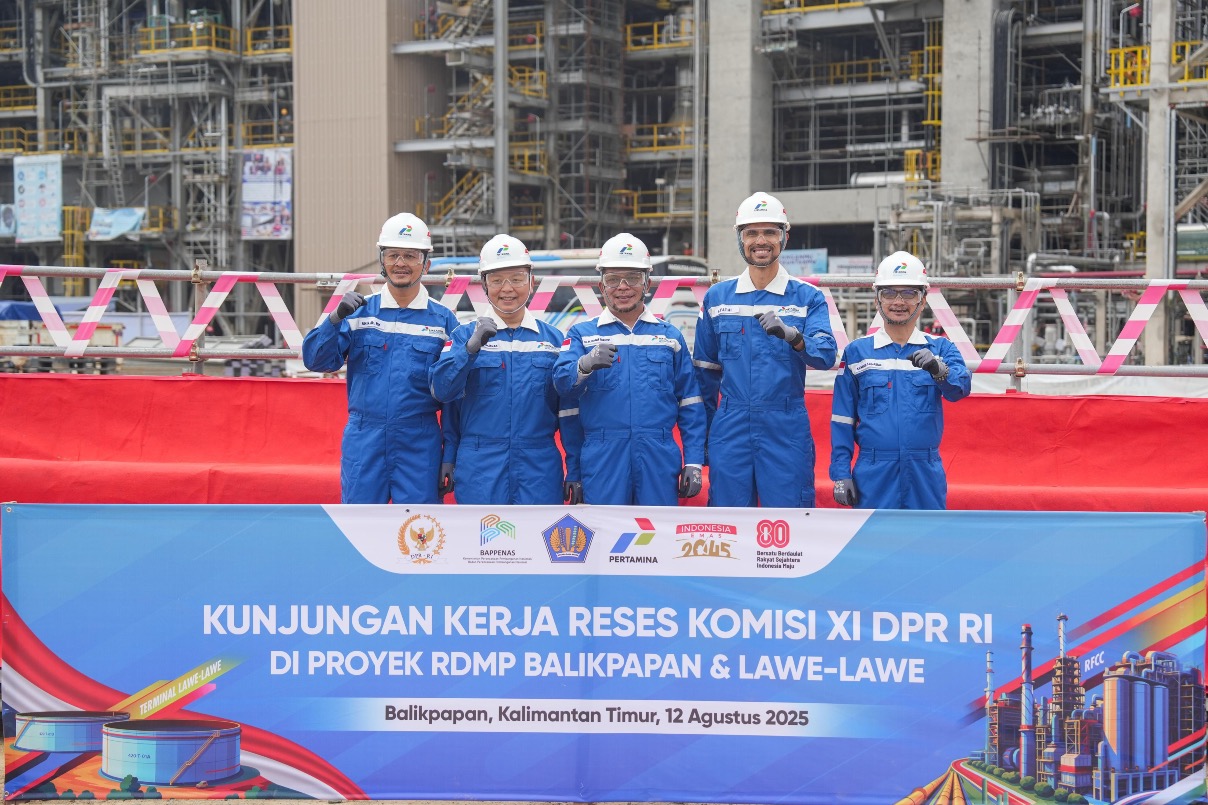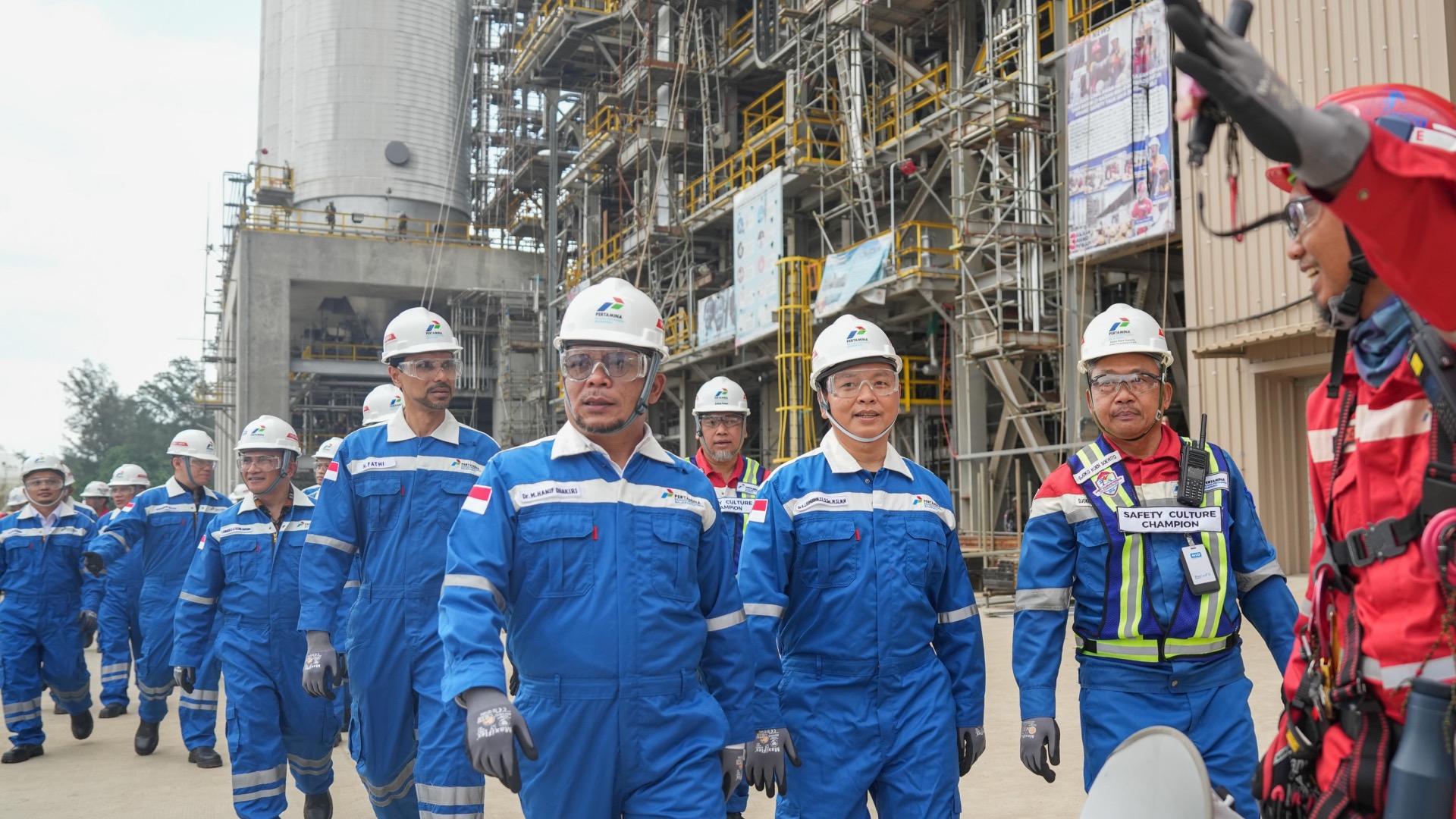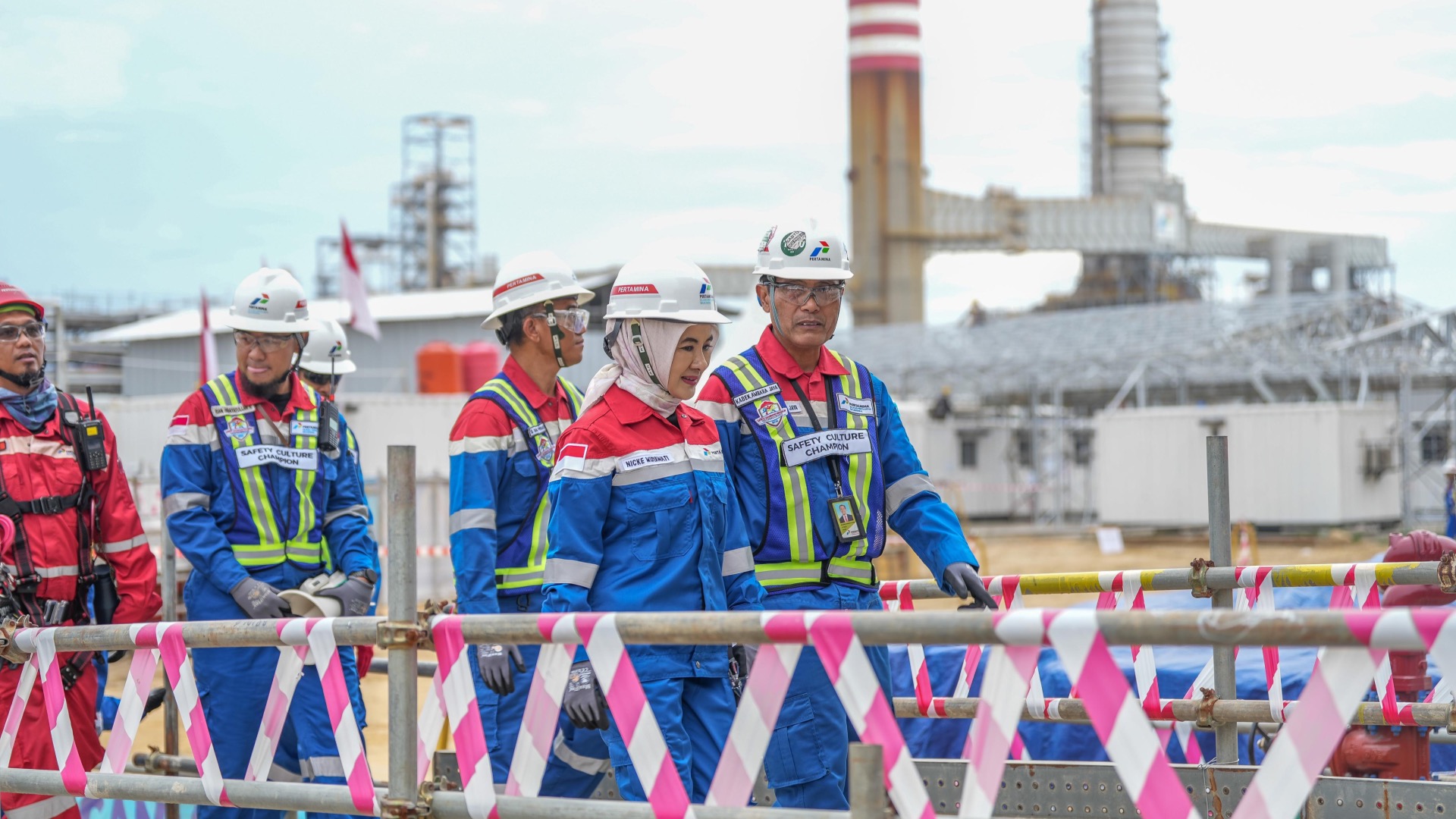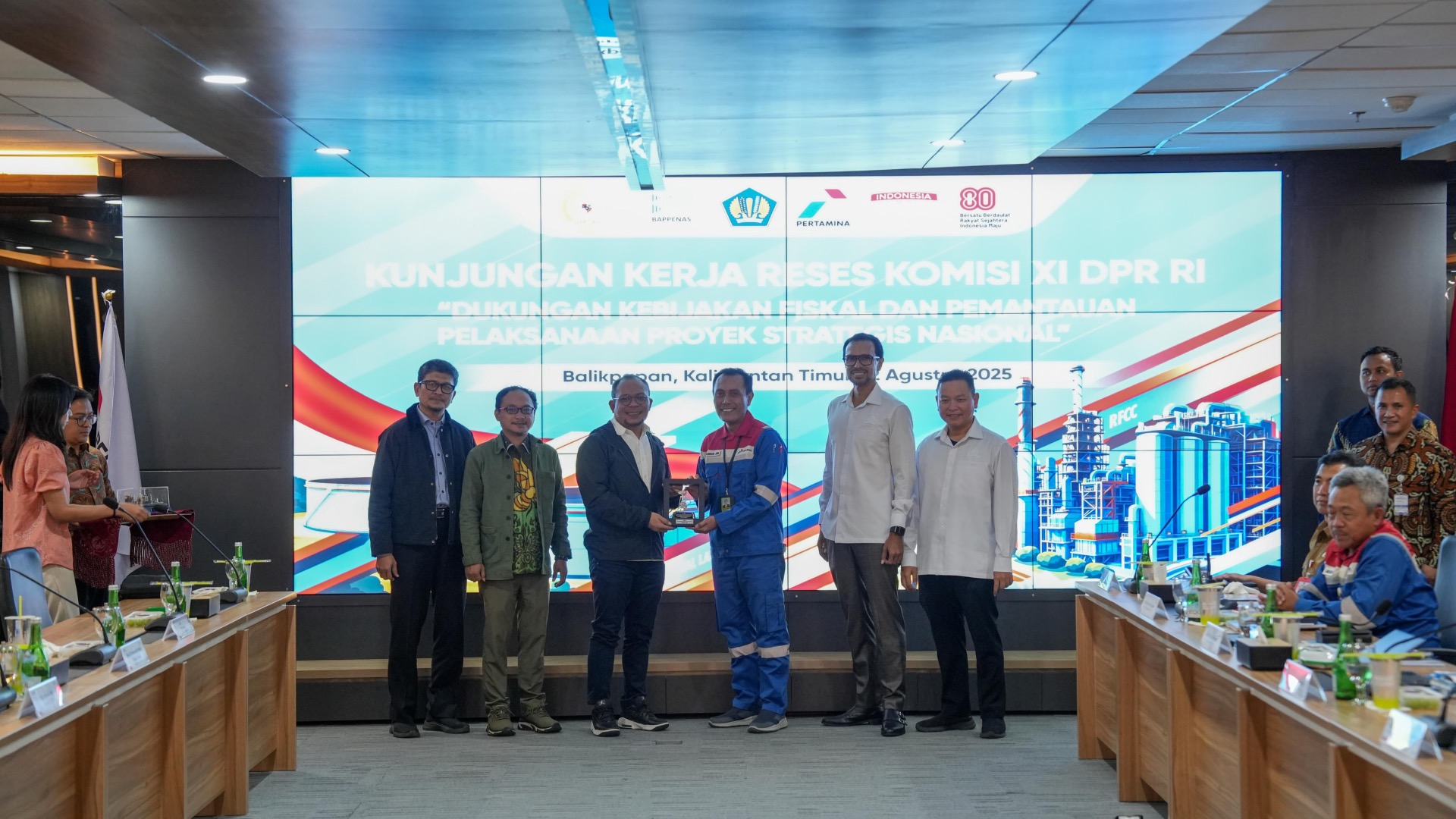Media
Press Release

House of Representatives Commission XI Reviews Balikpapan RDMP, Promotes Economic Growth and National Energy Security
Friday, 15 August 2025
PT Kilang Pertamina Balikpapan (KPB) received a working visit from Commission XI of the Indonesian House of Representatives (DPR RI) to discuss fiscal policy support and monitor the implementation of the Balikpapan Refinery Development Master Plan (RDMP) National Strategic Project (PSN). This visit is part of the DPR RI's efforts to ensure that the Balikpapan RDMP project is running according to plan, on schedule, and providing optimal benefits for national energy security and the regional economy.
The meeting took place in the Solar Room of the PT KPB Site Office Modification Building and was followed by a direct inspection of the Balikpapan RDMP project area on Tuesday (August 12). The event was also attended by representatives from the Ministry of National Development Planning/National Development Planning Agency of the Republic of Indonesia (PPN/Bappenas), the Ministry of Energy and Mineral Resources (ESDM), and the Ministry of Finance.
Muhammad Hanif Dhakiri, Deputy Chairman of Commission XI of the Indonesian House of Representatives, expressed his commitment to supporting the Balikpapan RDMP project. “Commission XI will continue to support this project so that it can provide tangible benefits and become a source of pride for the Indonesian nation,” said Hanif.
On this occasion, Commission XI of the Indonesian House of Representatives also emphasized the strategic role of RDMP Balikpapan in strengthening national energy reserves. By increasing refinery capacity and production efficiency, this project is able to reduce fuel import dependency, maintain supply stability, and ensure adequate energy availability for domestic needs, especially in eastern Indonesia.
This project, managed by PT KPB, brings significant transformations to refinery performance, starting with an increase in crude oil processing capacity to 360,000 barrels per day (bpd) from the previous 260 bpd. Additionally, the production of environmentally friendly EURO V-compliant products, along with the refinery's complexity increasing from 3.7 on the Nelson Complexity Index (NCI) to 8.0 NCI, reflects the refinery's ability to process crude oil of varying quality into high-value products.
Furthermore, Hanif emphasized the importance of synergy between the government, state-owned enterprises (SOEs), and the House of Representatives (DPR) in ensuring the success of strategic projects such as the Balikpapan RDMP. He noted that this project contributes positively to both the national Gross Domestic Product (GDP) and the Regional Gross Domestic Product (RGDP) of East Kalimantan.
“This project makes a good contribution to both national GDP and regional GDP, with an extraordinary multiplier effect, from job creation to the emergence of new economic hubs and various other business opportunities,” he added.
In response to this, PT KPB Vice President (VP) of Legal and Relations, Asep Sulaeman, said that the RDMP project has also triggered the growth of new economic centers around the location, encouraging trade, services, and supporting industries. "The positive impact can be seen from the absorption of up to 24,000 workers at the peak of construction. Small and medium enterprises (SMEs), food stalls, laundry services, delivery vehicles, and rental homes are all benefiting greatly,” he explained.
As of the first week of August 2025, the RDMP Balikpapan project has achieved a progress rate of 96.15%. The relevance of this project is closely aligned with the national development direction outlined in the Asta Cita, the eight priority programs. The completion of this project is expected to directly contribute to strengthening economic resilience through increased refinery capacity and energy supply independence.
“We ensure that every stage of the RDMP project is carried out with a focus on workplace safety and the quality of work. Through increased refinery capacity and quality, we aim to maximize benefits for national energy resilience while also driving regional economic growth,” Asep concluded.


